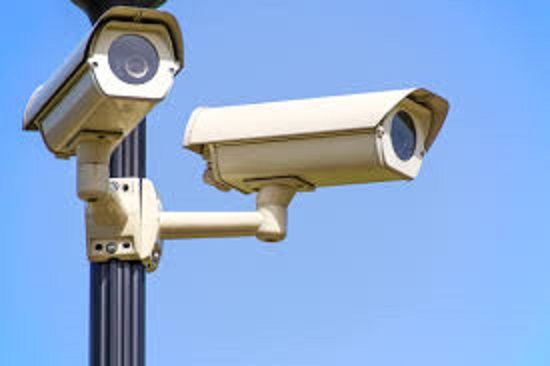
Hello my steemit community, welcome to my blog. Today I will be discussing something concerning our immediate environment that probably many of us don't take cognizance of, which is; effective usage of Close Circuit Television in curbing crimes.
The use of digital surveillance such as closed circuit television (CCTV) has becomes imperative to aids crime detection in our society. Developed countries such as United State of America, Japan, Russia, China etc has advanced in the use of this device to capture and detect crime related activities such as kidnapping, arm robbery, violence, etc. this device is majorly installed and mounted in banking hall premises, schools, markets, halls, and other public places.
A little history
In 1942 the first CCTV camera(WWII) was developed by Siemens AG in Germany, installed and designed by Walter Bruch and it was built to observe war rocket launched.
In 1949 – A US company introduced the first commercial CCTV television system. In that year, a government contractor named Vericon started to promote the system. Little is known about the technology used in this product, however the video couldn’t be recorded, they could on be used as live monitoring systems.source
Closed Circuit Television (CCTV) is an electronics device capable of accepting, reading, storing and converting analogue signals to digital signals. They are designed to bring about changes in the environment of the crime in which they are installed, rather than trying to change the attitudes and capacities of offenders. It is thought to deter criminality in the area under surveillance by:
- Increasing the threat of potential and actual offenders being identified
- Mobilizing some form of response
- And collecting evidences
CCTV systems depend on:
The type of monitoring; active or passive
Area where they are installed: town or city, business areas, or residential environments; market hall, car parks, railway stations, trains and buses.
Coverage areas and density of the coverage areas
A CCTV is referred to as passive when the system scans an area regularly and recorded it which can later be examined, assisting with collecting evidence.
While a CCTV can be said to be active when the system’s operators monitor it in real time, which can;
- Improve the threat of identification
- Aid in opening a communication channel responses.
Other benefits that can be ascribe to the usage of CCTV beyond a reduction in crime, including:
- Reduction in fear of crime
- It helps police investigations
- It helps in providing medical assistance
- Place management
- Gathering of information
- Diffusion of benefits
The benefits are hereby explained extensively.
Reduction in Fear of Crime
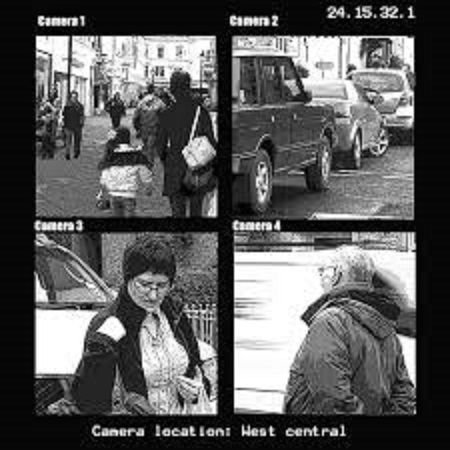
Various researches have been conducted to determine whether the presence of installed camera in public places could induce the fear of committing crime in people who use the area. Many people (seller of goods) were interrogated in the CCTV area, whether their patronage has increase based on the new CCTV systems. Generally, it was gathered that people tends to buy commodities more where it is safer; as a result boosting the economy of such an area.
The research shows that there were reductions in the level of fear of crime among people in CCTV areas, noticeably only among the dweller under surveillance. More than half of those that were interviewees were aware they were in a CCTV area. It can be inferred that the presence of CCTV encourages people to be more conscious about their environment which reduce the fear of crime and increases the number of people using the environment.
It helps Police Investigations
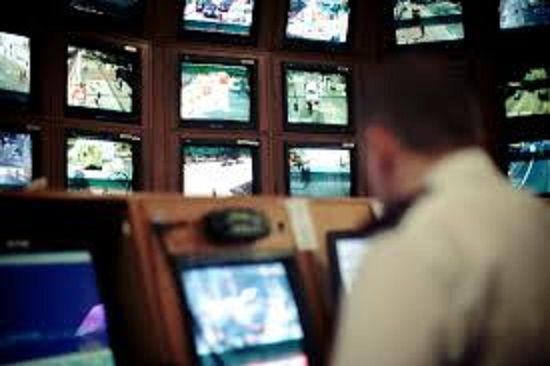
Asides the reduction of crime rate in our society or total prevention, CCTV could also be used in detection role. Many people (offenders) have been convicted with the help of their CCTV tapes been captured. Many witnesses have also been identified through their camera footage which helps the police in their investigation because of fear to come openly. The use of CCTV camera as an evidence can be compelling, though image quality are important factors if CCTV images are purposely used for identification.
For instance, if CCTV record an incident, and a rapid response is been made by the police to arrest within view of the camera (when the offender is still within the vicinity of the camera), the tape of the incident can help to convict the investigators. Offenders are tends to be driven away by the usage of CCTV by police for investigation in committing offenses that take time, as it increases their risk of being capture.
It helps in providing Medical Assistance
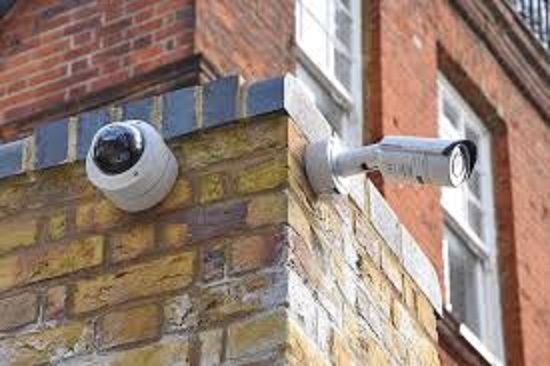
The use of CCTV also cut across medical intervention as its operators can contact medical services in case if people that are suffering from illness or injury as a result of criminal activity (such as assaults, violence, and robberies) or non-crime medical emergencies like accident are found in the street. CCTV is a public safety benefit because it has ability to summon assistance.
Place Management
CCTV can found its usage in management of general location. The system can be used to monitor the flow of traffic, public meetings, to locate children that are lost; violent that may require the intervention of additional police resources, or to avert unnecessary response from police as a result of unnecessary activation of alarm.
Brown reported that some police commanders claim that assaults on police have reduced because the cameras allow them to determine the appropriate level of response to an incident, either by sending more officers to large fights, or by limiting the number of officers to a minor incident and avoid inflaming the situation. source
Gathering of Information
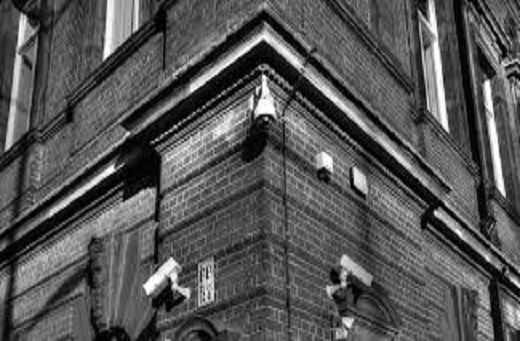
CCTV camera can also be used in public places (such as shoplifters in public retail area) to monitor the behavior and gather information or intelligence of known offenders. Local offenders’ faces can easily be traced by the operators of CCTV camera, and the need of deploring plainclothes police officers will become trivial as the camera could also be used to monitor their movement. For instance, intelligence information can be gathered by security operative on the behavior of individuals selling stolen goods. The use of CCTV in public places to gather intelligence by some people has been described as a threat to their freedom.
Diffusion of Benefits.
Criminologists described diffusion of benefits as a way in which criminal activity can be curtail in a wider area than that covered by the camera system of CCTV, though there are possibility that if offenders are aware and cautious in the presence of CCTV cameras, the cameras’ capabilities might be unknown to them.
Unintended Consequences
The use of CCTV tends to poise some unintended consequences. These include:
- Displacement,
- It use tends to increase the fear of crime or suspicion, and
- It use tends to increase crime report cases.
These possibilities are discussed in the following section.
Displacement
Offenders or criminals that have the knowledge of CCTV system operation tend to move their culprit from the sight of the system in order for them not to be captured by the system.
A CCTV system may also force the criminal fraternity to be more imaginative and to diversify operations. For example, researchers reported that in a London drug market the presence of cameras encouraged the drug market to move to a system where orders were taken by mobile phone and then delivered, and as such "increase the speed and ingenuity of the drug transaction". This is an example of tactical displacement, where offenders change their modus operandi to continue the same criminal acts. Even though this particular introduction of CCTV may not be seen as an unqualified success that the CCTV system forced a change in behavior is positive. CCTV is likely to have forced drug dealers to adopt a less effective way of conducting business, resulting in a net reduction in crime.source
It use tends to increase the fear of crime or suspicion
The second concern is that some people have a negative notion towards it. In the sense that they perceived it as a ‘spy’ which prevented them of performing to their utmost desired in their day to day activities. In a survey, owners and managers of some organizations were reluctant to advertise the cameras because they believe that it may poise threat and fear into the mind of shoppers and customers.
Though the primary aim of CCTV is to prevent crime but this cannot be achieved unless by increasing the perception of risk in the offender.
It use tends to increase crime report cases
Figures have shown it that there was upsurge increase in the rate of crime being reported daily as a result of the usage of CCTV system. Though many low rated h offenses such as violence, and drug offenses were also recorded. But putting CCTV in place could help to spot these offenses thereby increasing their crime figures as in case of narcotics offenses in Oslo Central Train Station.
Conclusively, it could be inferred from the above importance of CCTV in our society, that its use is imperative and everyone should try to install one in his/her house as a protective measure against terrorism, robbery, violence etc.
Thanks for reading.
Please note: all pictures used in this post are labelled for free usage.
Hi! I am a robot. I just upvoted you! I found similar content that readers might be interested in:
http://www.popcenter.org/Responses/video_surveillance/print/
Downvoting a post can decrease pending rewards and make it less visible. Common reasons:
Submit
Nice post! very interesting. Fun fact - modern IP CCTV systems aren't technically CCTV (closed circuit television systems) as they're no longer closed systems but they also no longer use TVL ;)
Downvoting a post can decrease pending rewards and make it less visible. Common reasons:
Submit